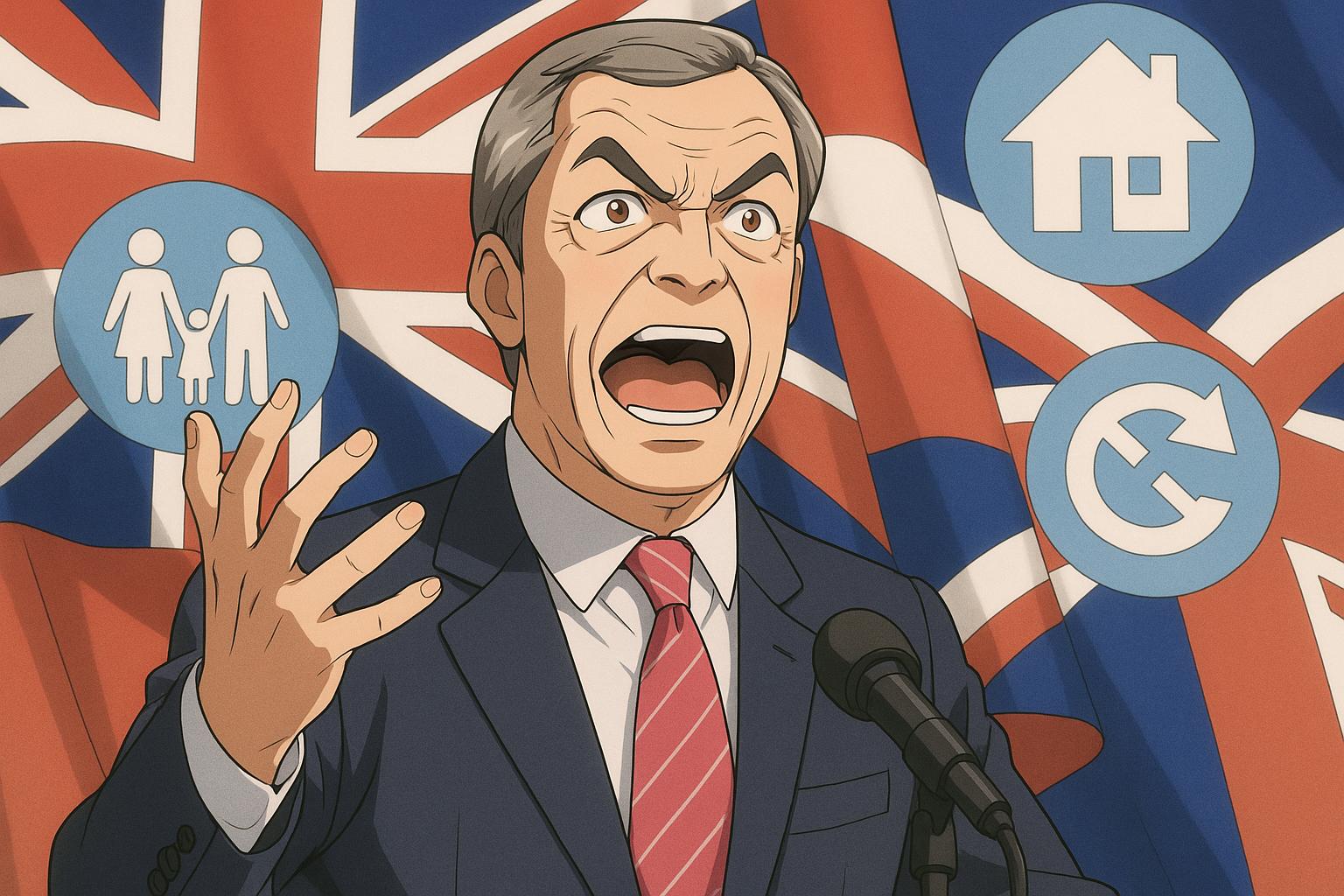Reform UK leader Nigel Farage has ignited political discourse in the UK with pledges aimed at what he describes as a “genuine political revolution.” Speaking at a recent event in London, Farage outlined a selection of policies that he claims reflect his party’s dedication to “family, community, and country.” His proposals signal a direct challenge to the incumbent Labour Party, particularly the leadership of Sir Keir Starmer, positioning Reform UK as a growing force in British politics.
One of Farage's central points of contention revolves around recent governmental actions, specifically targeting Starmer's agreements with the EU and the controversial deal concerning the Chagos Islands. Farage lambasted these developments, declaring them as contrary to national interests and undermining the principles of Brexit. He described the Chagos Islands deal—where sovereignty would be transferred to Mauritius in exchange for leasing the Diego Garcia military base—as “the worst deal I’ve ever seen in my life.” Furthermore, he accused the government of compromising on critical issues, including border security and migration controls, thus betraying the electorate's trust in the wake of Brexit.
In addition to these critiques, Farage has outlined a series of potential reforms, including the abolition of the two-child benefit cap. This policy, already under consideration by Labour cabinet ministers, is projected to cost approximately £3.5 billion annually. Farage argues that lifting this cap would alleviate financial burdens for lower-income families and assist in addressing child poverty, a sentiment echoed by some within the Labour Party. However, the implications on public expenditure may lead to significant tensions within Labour as it strives to maintain fiscal responsibility amid calls for increased benefits.
Complementing this, Farage has pledged to reinstate winter fuel payments for pensioners, a move that aligns with a broader push within the political landscape for enhanced support of the elderly. He has also proposed a raise in the income tax threshold to £20,000, suggesting that this would not only support working-class families but also stimulate economic growth, despite acknowledging the financial strain it would impose on public finances.
Farage's policy aspirations extend to abolishing the net zero targets, which he claims cost the UK Exchequer £40 billion annually. His rhetoric resonates with portions of the electorate concerned about both rising energy costs and economic sustainability. Furthermore, he has promised to eliminate diversity, equity, and inclusion initiatives in the public sector, citing the financial burden these programmes impose on taxpayers. While such proposals appeal to a demographic frustrated with perceived overreach in social policy, they highlight a growing schism between populist politics and more traditional, progressive platforms.
The recent political climate presents both challenges and opportunities for Reform UK, with growing public sentiment pushing for alternative solutions to pressing social issues. The party's rise has been underscored by its successful local governance strategy, gaining control of multiple councils, where it has initiated cuts to climate-related expenditures and embraced a more traditional public spending approach. However, its ambitious agenda raises questions about practical execution and the potential repercussions for those who rely on government aid.
In closing, Farage’s agenda reflects a significant recalibration in UK politics as Reform UK seeks to capture the discontent among voters disillusioned by the traditional parties. With its promises of sweeping reform and an appeal to economic pragmatism, the party positions itself as a potential kingmaker, particularly in light of an electorate increasingly weary of the status quo.
Reference Map:
- Paragraph 1 – [1], [2]
- Paragraph 2 – [1], [3], [6]
- Paragraph 3 – [2], [4], [5]
- Paragraph 4 – [1], [4], [7]
- Paragraph 5 – [5], [6], [7]
Source: Noah Wire Services
